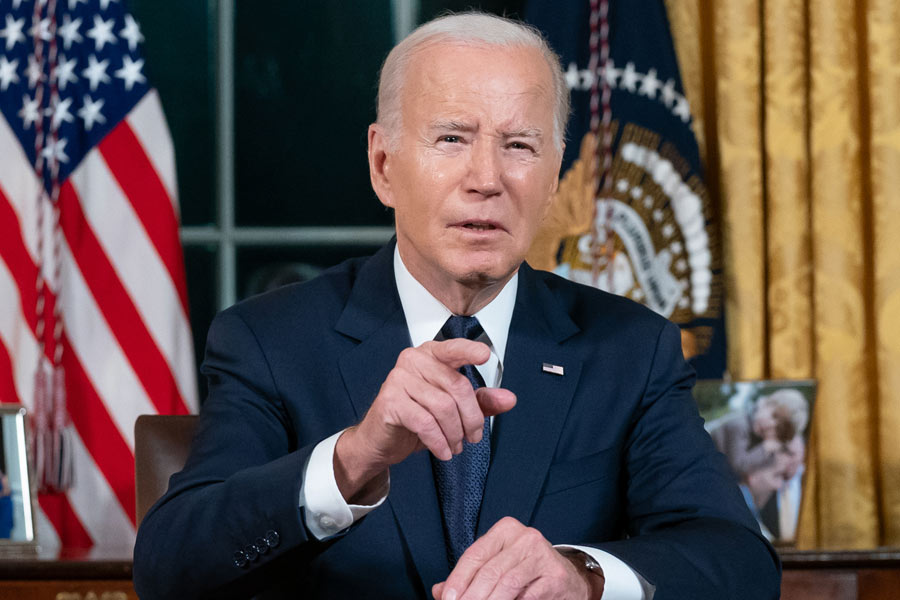The Biden administration showed no new signs on Friday that it was prepared to take a tougher line on Israel’s military operation against Hamas as desperate conditions in the Gaza Strip grew even worse, with civilian deaths rising and aid groups warning of shortages of water, food and medicine.
Biden officials say Israel must do more to limit civilian casualties and allow humanitarian aid into Gaza. But that still leaves America’s position far from that of many Arab countries, which are demanding an immediate ceasefire and blame Israel for what they call a profoundly disproportionate response to the October 7 Hamas attacks.
During a visit to Washington on Friday, ministers from Saudi Arabia and other Arab nations said at a news conference that the Israeli offensive must stop, with Jordan’s foreign minister, Ayman Safadi, accusing Israel of committing a “massacre.”
At the UN on Friday, the US vetoed a Security Council resolution drafted by the UAE that called for a humanitarian ceasefire — a lonely position against 13 votes in favor.
While under growing pressure at home and abroad, the Biden administration has been trying to persuade Israel to do more to protect Palestinian civilians. But it has not publicly threatened Israel with any specific consequences if it does not.
White House officials brush off talk of cutting or conditioning military aid to Israel and say they have not given Israel a firm deadline to finish its offensive in Gaza.
On Thursday, secretary of state Antony Blinken indicated that the US remained dissatisfied with civilian deaths and humanitarian conditions in Gaza about a week after new fighting broke a pause to allow for the release of hostages held by Hamas and prisoners held by Israel. Israel’s response to the October 7 Hamas attacks, which left about 1,200 people dead, has claimed more than 15,000 lives, according to health authorities in Gaza.
At a news conference in Washington, Blinken said that “there does remain a gap” between Israel’s stated “intent to protect civilians and the actual results that we’re seeing on the ground”.
During a visit to Israel last week, Blinken said he told Prime Minister Benjamin Netanyahu and other Israeli leaders that they must designate safe areas for civilians, avoid further displacement of Gaza residents and prevent damage to critical infrastructure such as power stations. Defense Secretary Lloyd Austin and Vice President Kamala Harris have also urged Israel to conduct its operations with more care.
Blinken said on Thursday that Israel has taken some positive steps, including “evacuating neighborhoods instead of entire cities”, creating safe areas, and “having a more narrowly focused area of where this military operation is actually being conducted”.
Israeli officials argue that they are in an impossible position, fighting an enemy in Hamas that embeds itself among civilians and that, they charge, seeks to maximise Palestinian deaths to make Israel appear cruel to the world. Israeli leaders say that even as they often take unusual steps to warn civilians about impending attacks, they cannot defeat a fanatical enemy in a dense urban area without great collateral damage.
But in Washington and at the UN, Arab diplomats expressed anger at Israel’s renewed offensive, which US officials concede is again incurring casualties at a high rate and adding to Gaza’s humanitarian crisis. Those diplomats — from Saudi Arabia, Egypt, Qatar, Jordan and the Palestinian Authority — met Blinken at the state department on Friday afternoon.
New York Times News Service











